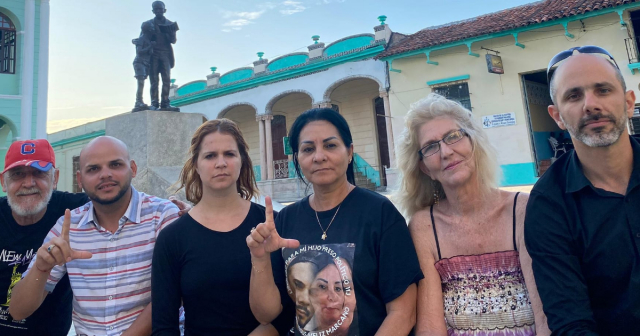The ruler Miguel Díaz-Canel defended the one-party system to young Americans, stating that democracy is not about multi-party systems, but rather the ability of individuals to "exercise their rights."
Once again revictimizing himself, the ruler explained at the meeting that "people don't understand us when we say we have only one party, and they say we are not democratic because we have only one party."
"Is the United States democratic because it has multiple parties? One party, the Republican, implemented the 243 measures to tighten the blockade, and the Democrat maintained them. What's the story? Is that democracy?" he asked rhetorically.
According to Díaz-Canel, democracy is not measured by the number of parties, but by the "rights of a people."
"Is democracy measured by the number of parties? Or true democracy is really measured by how people in a society can exercise their rights and be protected with their rights," he emphasized.
When posting a snippet of the meeting on the social network X, the ruler said, "the better world feels closer and more possible when you get to know the progressive youth of North America, when you explain our difficult daily life to them," and they call for an end to the "blockade."
Díaz-Canel has reiterated during his term that democracy does not lie in multi-party systems, but admitted two years ago that in Cuba there is no separation of powers but a "unity of powers"; an idea that goes completely against one of the fundamental principles of modern democracies, according to political science, which is precisely the independence of the executive, legislative, and judicial branches.
In the world, much is said about the division of powers. The legislative power is generally in the institutions that approve laws, the executive power in the government, and the judicial power in the courts, but in Cuba, there is no work with the division of powers. They work with the unity of powers, through bodies that have different functions," said the leader in front of the Cuban delegates, in an attempt to lecture on the subject.
It has also called on the single party to represent the entire population, although a large part of it remains marginalized from the decisions of the State and their rights are constantly denied, such as opposition or dissident groups in the country.
What do you think?
COMMENTFiled under:
